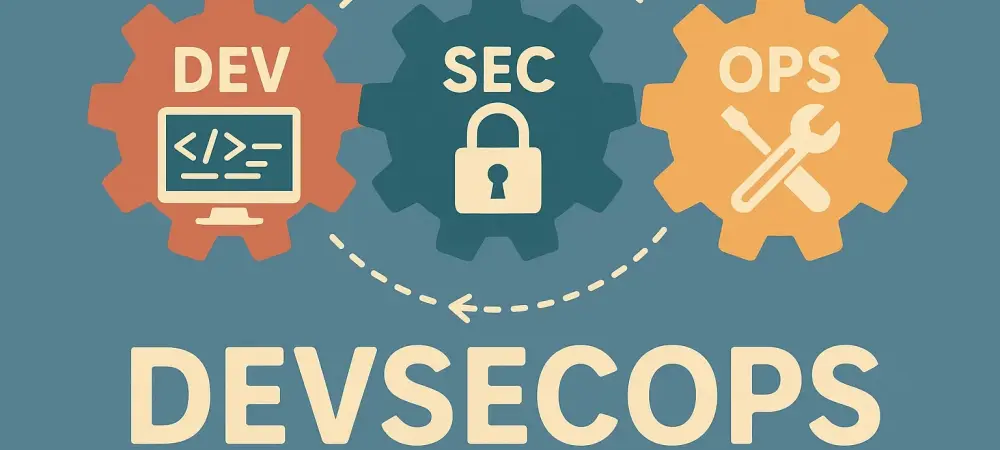The software development and security operations fields are undergoing a profound transformation, with the software company GitLab pioneering these changes through its innovative use of artificial intelligence (AI). Implementing AI within its DevSecOps processes represents a cutting-edge approach that promises to enhance efficiency and elevate security measures dramatically. GitLab’s deployment of AI tools, particularly through GitLab Duo, marks a significant evolution in the DevSecOps landscape, focusing on optimizing workflows by automating tasks like incident response and security issue management. This strategic move underscores the potential for AI to not only streamline operations but also redefine how teams approach and solve complex problems in development and security spheres.
Enhancing Development Life Cycles with AI
A pivotal element of GitLab’s strategy involves integrating AI into multiple facets of its development lifecycle. The introduction of GitLab Duo exemplifies this approach, employing large language models (LLMs) to assist DevSecOps teams in managing tasks ranging from software planning and building to deployment and security incident handling. This tool is specifically engineered to aid in summarizing complex issues into concise formats, allowing teams to quickly grasp and address problems. By automating the initial phases of incident response—such as ticket creation and data collection—GitLab Duo significantly reduces the manual workload, enabling teams to concentrate their expertise on more critical tasks.
AI’s role in enhancing DevSecOps processes extends beyond mere automation. It serves as an accelerant for skilled professionals, freeing them from repetitive or mundane tasks, thereby amplifying their capacity to focus on areas that require human expertise. According to Josh Lemos, GitLab’s Chief Information Security Officer, AI’s true potential is realized when used in conjunction with existing knowledge bases. While AI can generate code and identify security anti-patterns, its efficacy is maximized when users possess the capability to evaluate and enhance these outputs. This reality highlights the importance of a synergetic relationship between AI and human expertise, where the former acts as a tool to elevate the latter’s effectiveness.
Optimizing Security Measures
GitLab’s use of AI goes beyond automation, playing a crucial role in fortifying security measures. Within product security, AI is leveraged to detect and correct anti-patterns—undesirable coding practices counterproductive to best practices. While AI provides substantial benefits, it is most effective when operated by users already versed in the required tasks. For instance, experienced developers can utilize AI to both generate code and apply their technical acumen to identify and rectify potential security vulnerabilities. This approach underscores the necessity of human expertise in maximally leveraging AI’s capabilities.
An innovative aspect of GitLab’s approach is the implementation of model routing on its backend, allowing the adaptation of various large language models to different programming languages. This tailoring enhances the precision and effectiveness of AI applications across diverse coding environments. Success in AI adoption is measured through numerous metrics such as a reduction in vulnerabilities, fewer security anti-patterns, and expedited issue resolution times. These improvements not only enhance development processes but also ensure a quicker transition of newly developed features to the market, showcasing AI’s vital role in accelerating timelines and boosting innovation.
The Role of AI in Strategic Operations
In the realm of security operations, AI serves as a catalyst for automation. Lemos highlights that many traditionally manual, repetitive processes now benefit from AI-driven automation. This shift allows security professionals to redirect their focus to more strategic, impactful activities rather than mundane routine tasks. Consequently, AI helps to optimize resource allocation, enabling teams to harness their expertise in developing strategic solutions and fostering innovative practices.
An emerging trend is GitLab’s increasing emphasis on recruiting individuals skilled in machine learning, data science, and prompt engineering. As AI grows increasingly central to both security and development operations, proficiency in these fields becomes indispensable. Professionals equipped with these skills are better positioned to utilize AI technologies effectively, achieving both their technical and security objectives. This trend reflects a broader industry movement toward integrating interdisciplinary expertise into core workflows, positioning organizations to capitalize on AI’s transformative potential fully.
Adoption and Future Potential of AI in DevSecOps
While GitLab is advancing AI integration within its systems, the adoption of such technologies among users remains in the early stages. Lemos notes that while the technology sector leads in AI implementation, user organizations are beginning to explore AI’s potential in DevSecOps. The challenge for these organizations lies in clearly defining their objectives and outcomes to fully leverage AI within their workflows. This advice is crucial for successfully infusing AI into existing processes and ensuring its benefits are maximally realized. The overarching sentiment is one of optimism regarding AI’s transformative impact on DevSecOps. AI not only enhances individual capabilities but also elevates team efficiency. Lemos anticipates substantial developments in the coming year as organizations increasingly incorporate agentic AI into their DevSecOps cycles. This shift promises to usher in a new era of streamlined operations and innovation, where AI-driven processes complement and amplify human expertise.
Future of AI in Software Development and Security
The fields of software development and security operations are experiencing a significant transformation, largely driven by the pioneering efforts of GitLab in leveraging artificial intelligence (AI). By integrating AI into its DevSecOps operations, GitLab is adopting a groundbreaking approach that promises to boost efficiency and substantially enhance security protocols. Especially through its GitLab Duo initiative, the implementation of AI tools marks a noteworthy shift in the DevSecOps domain, with an emphasis on optimizing workflows by automating critical tasks like incident response and managing security challenges. This strategic initiative highlights AI’s potential to streamline operations and fundamentally reshape how teams tackle and resolve intricate issues within the realms of development and security. GitLab’s advancement in AI is not just about improving processes but also about reimagining the intersection of technology, security, and innovation, paving the way for future developments.

